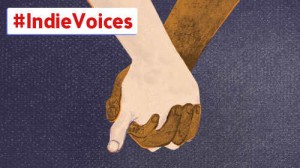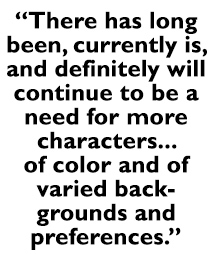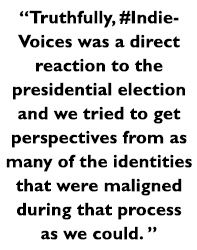
Sign up today...
for featured titles, special offers, bestsellers, and more, in your inbox!
 No matter what you think of the events set to transpire this weekend (Trump’s inauguration and the numerous marches and protests that will accompany it), one thing is for certain—we are entering an entirely new era. How will this affect those of us in the book world? And what will the role of the publishing industry be?
No matter what you think of the events set to transpire this weekend (Trump’s inauguration and the numerous marches and protests that will accompany it), one thing is for certain—we are entering an entirely new era. How will this affect those of us in the book world? And what will the role of the publishing industry be?
Here, Foreword Reviews Seth Dellon outlines how they plan to confront the changing tides with the promotion of diverse reads and #IndieVoices.
IPG: Tell us a bit about Foreword’s new mission. Why is it so relevant going into 2017?
Seth Dellon: Foreword’s mission has always been to discover and promote books from independent presses, so I wouldn’t say our mission has changed; rather, we see a timely opportunity for focusing that mission. Our new tagline, “Be fearless. Read indie. Think Foreword,” speaks to the idea that the books we cover assist typically marginalized or ignored voices get more due notice. Following the election, it’s apparent that there’s not only a major division, but also an overall misunderstanding on what “the other side” thinks and feels. We feel strongly that books can help bridge the divide, but it takes a commitment to be brave enough to challenge your worldview.
 IPG: What is the role of indie publishers in this initiative? What is the role of Foreword?
IPG: What is the role of indie publishers in this initiative? What is the role of Foreword?
Seth: Bestseller lists are typically dominated by (albeit oftentimes great) books from the five largest American publishers. But there are thousands of publishers that are creating books for different purposes than that of the “Big Five”—publishers, for example, whose lists are completely dedicated to LGBT literature, translated works, diversity in general, academia, or even conservative politics. In other words, there are entire publishers with entire lists dedicated to an idea or a genre that mainstream publishing might barely touch on, if mainstream publishing touches it at all. Because indie publishers have very few people to “answer to” they can be more pointed, or flexible, or measure success differently than larger, corporate publishers. That’s not to say that for-profit indie publishers aren’t actively trying to make a profit, but they’re trying to do that on their own terms, and that might mean publishing books for a very small niche that isn’t being served by the mainstream. For someone who doesn’t see their identity represented often in the books they find, I would argue that it’s very likely there’s an indie publisher who is speaking directly to that person.
A t Foreword, we see our role as curating the books from this universe of publishers, and making sure readers know about books they might not otherwise know about. We understand that a lot of non-Big-Five books are, for lack of a better word, “unproven” with a typical reader. We’re hoping that the books we cover help give credence in those readers’ eyes that these are valuable books that might speak to you or help teach you a lesson, and that they’re worth your time (and money).
t Foreword, we see our role as curating the books from this universe of publishers, and making sure readers know about books they might not otherwise know about. We understand that a lot of non-Big-Five books are, for lack of a better word, “unproven” with a typical reader. We’re hoping that the books we cover help give credence in those readers’ eyes that these are valuable books that might speak to you or help teach you a lesson, and that they’re worth your time (and money).
IPG: Why do you think diversity in publishing is so important?
Seth: Diversity speaks to the need to hear stories from less homogenous perspectives. There has long been, currently is, and definitely will continue to be a need for more characters (and writers, and editors, and marketing departments) of color and of varied backgrounds and preferences, because the audiences are there even if they won’t buy enough books to get a title placed on a bestseller list.
Where “be fearless” comes in is our goal of bridging the divide and challenging your worldview. As Lee and Low Publisher, Jason Low, recently wrote in an op-ed for us as part of our #IndieVoices series, “If the president-elect read diverse books growing up, he would not be the person he is now. What you read matters.”
I PG: Your #IndieVoices series covers a long list of topics that aren’t normally discussed—is there any topic in particular that you feel needed to be put out there more than others?
PG: Your #IndieVoices series covers a long list of topics that aren’t normally discussed—is there any topic in particular that you feel needed to be put out there more than others?
Seth: The #IndieVoices series as a whole has been pretty successful, which we’re obviously happy about, but I wouldn’t label any one perspective as one that needed a bigger push than any other. Truthfully, #IndieVoices was a direct reaction to the presidential election and we tried to get perspectives from as many of the identities that were maligned during that process as we could. That’s sadly a long list, but the fact that we’ve gotten an equally long list of responses—covering immigration, feminism, the handicapped, the LGBT community, diversity in children’s publishing, Islam, and more—speaks to how awesome and active and diverse indie publishing is.
 IPG: How do you think social media plays into this promotion of diversity in publishing?
IPG: How do you think social media plays into this promotion of diversity in publishing?
Seth: I think social media can be equal parts ally and enemy. While social media has leveled the playing field in a number of ways, giving smaller publishers and individual authors (and media companies like Foreword) the opportunity to build a platform and interact with readers and potential readers, one thing that’s been made obvious following the election is that social media isn’t a particular breeding ground people accepting new ideas. So while I’m not sure we’ll be changing a lot of minds through the power of social media, one place where social media can be a great venture is in letting a specific group of readers know that there are books for them, and that’s an important use of social platforms.
IPG: What is Foreword’s social media strategy, and how has it evolved in recent years?
Seth: That’s something we’re constantly tinkering with. Right now, our social media strategy is more focused on what we’re doing off of social media, namely producing more quality content more often. Then, we’re taking that content, and not only sharing it on our own platforms, but finding specific groups of readers and sharing our applicable content with them (we’ve done really well with that on Reddit).
On Facebook specifically, we’ve also put a concerted effort to not only reach readers, but also to reach publishers and authors. We’ve had great returns on some paid campaigns to spread the word about some of the publisher services that we offer. I’m happy that we get to operate in the middle ground between publishers/authors and readers. It’s challenging, but also a great way to learn.
Seth (Associate Publisher, Foreword Reviews) will be a guest contributor for IPG’s upcoming Social Media Bootcamp. We’re looking forward to more insight!
Leave a Reply